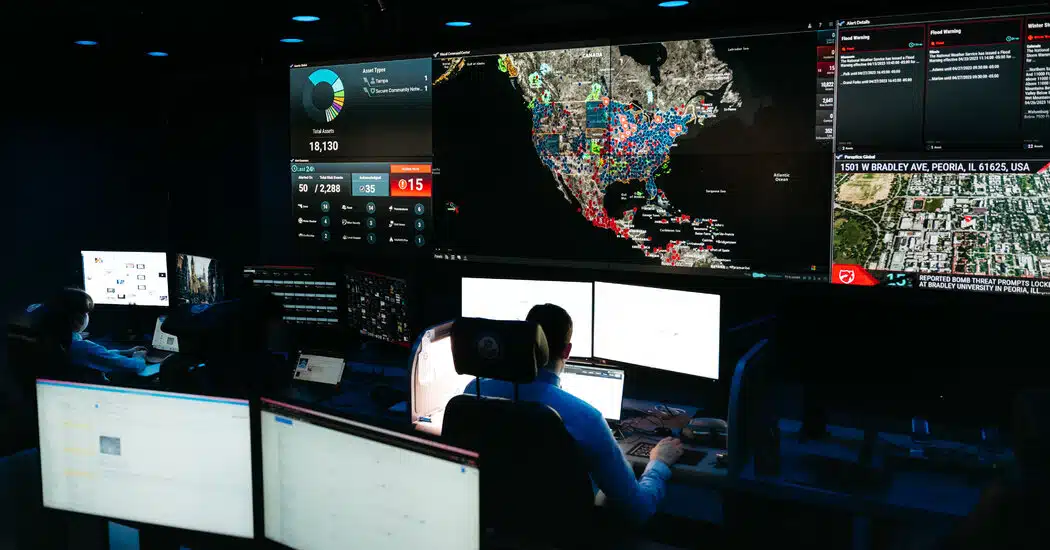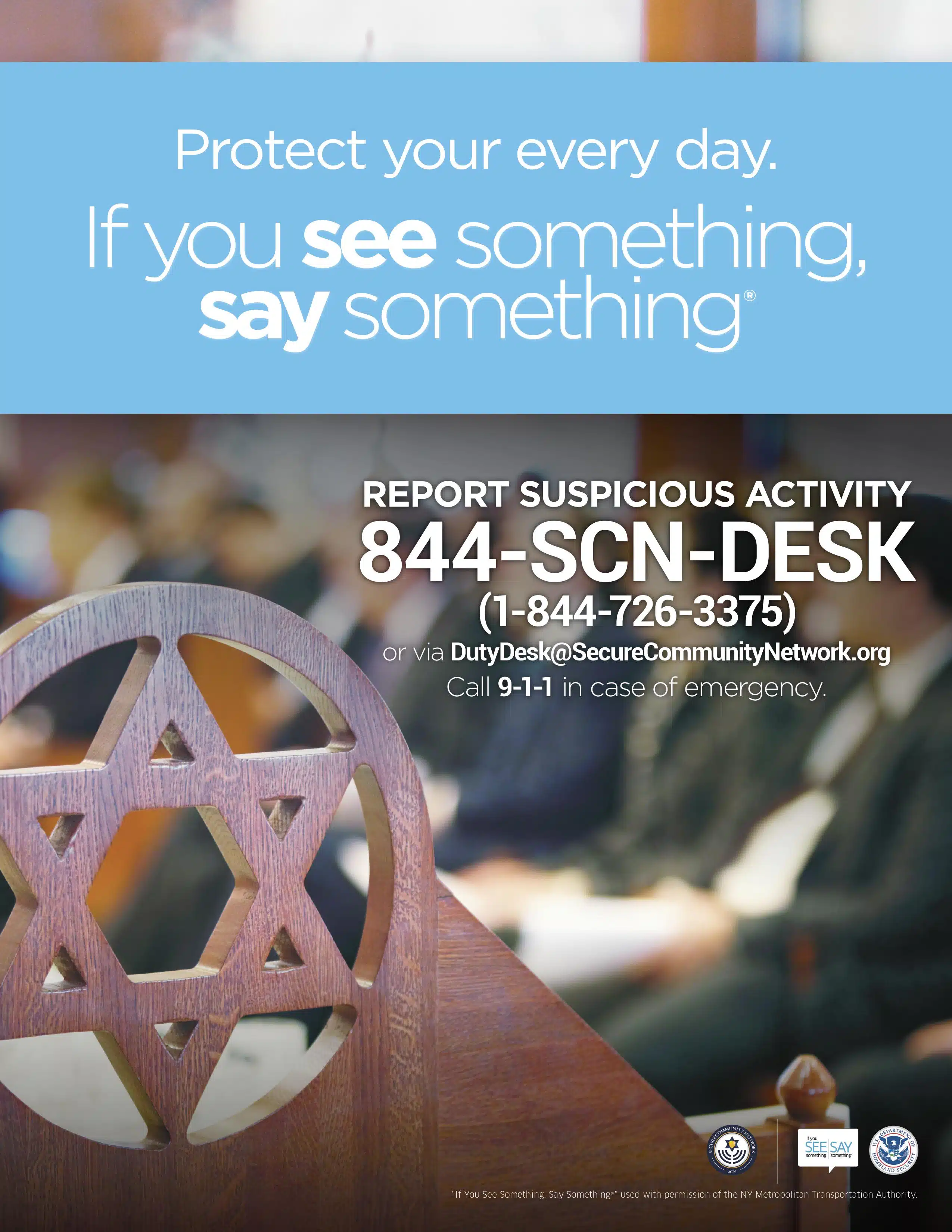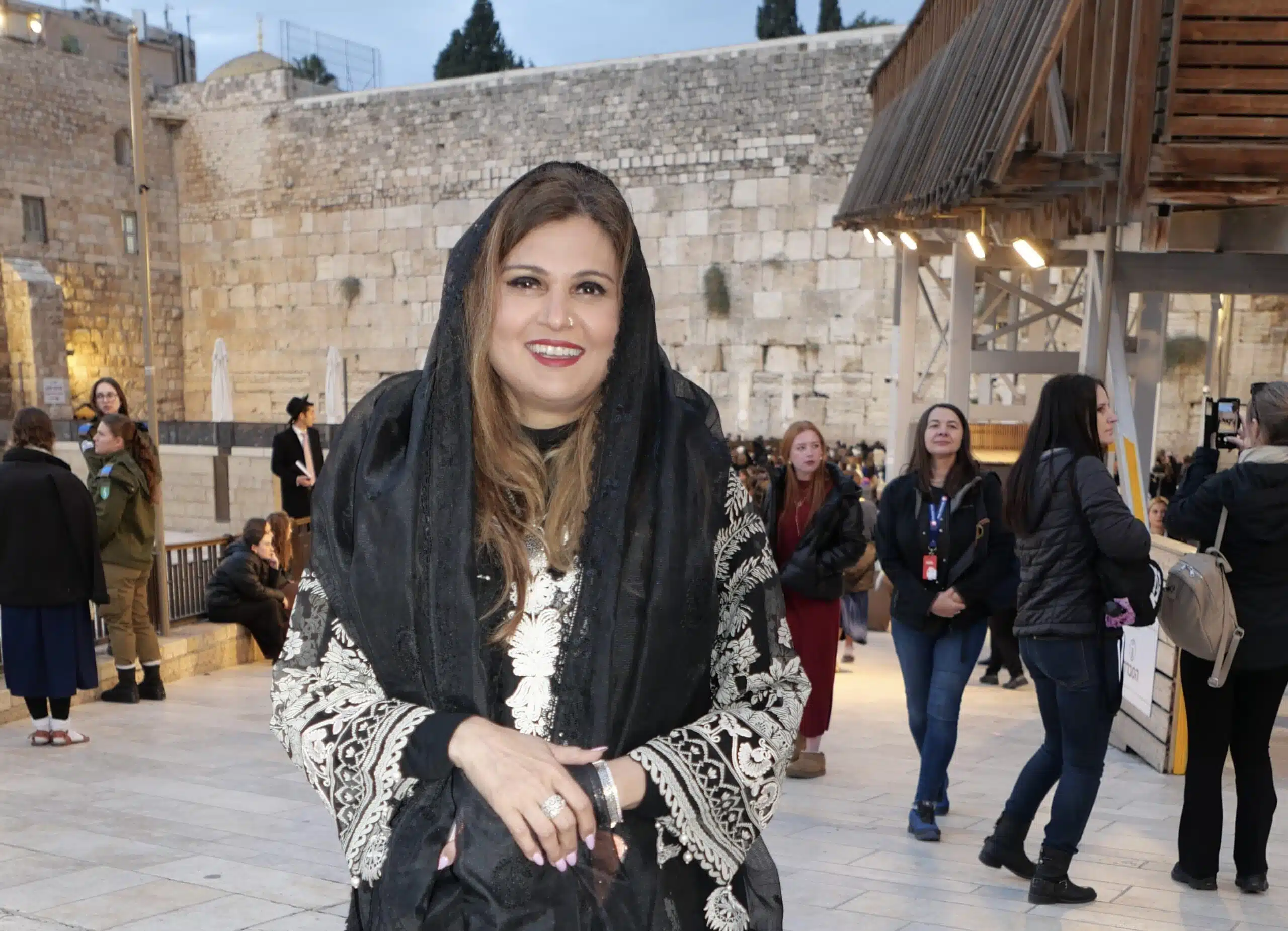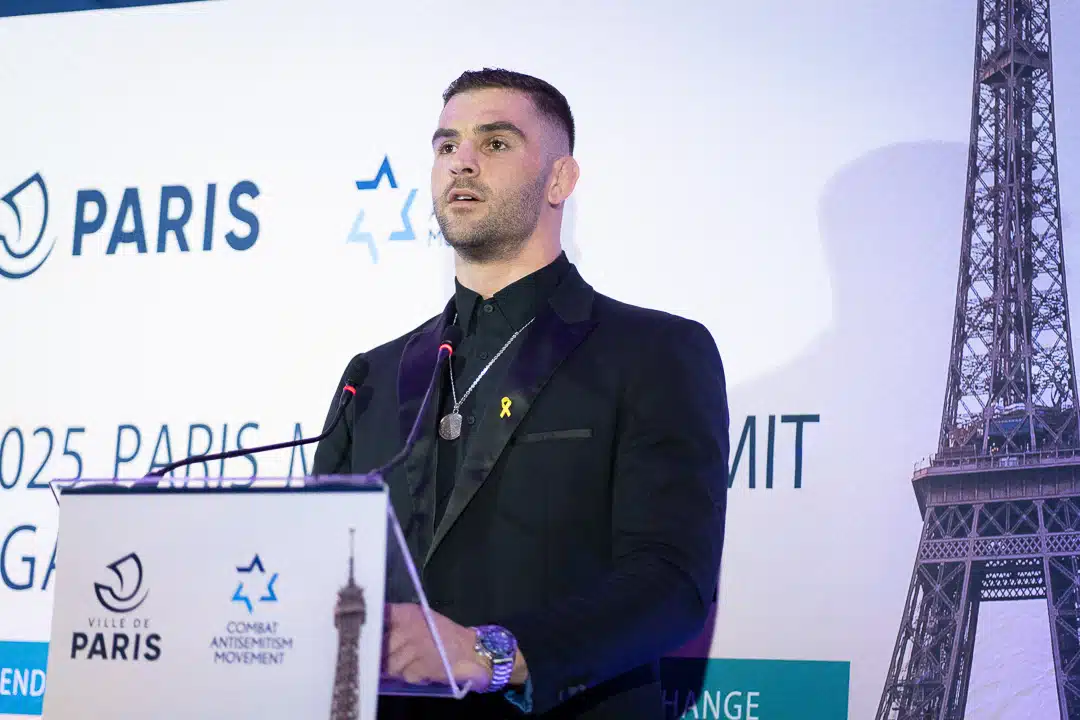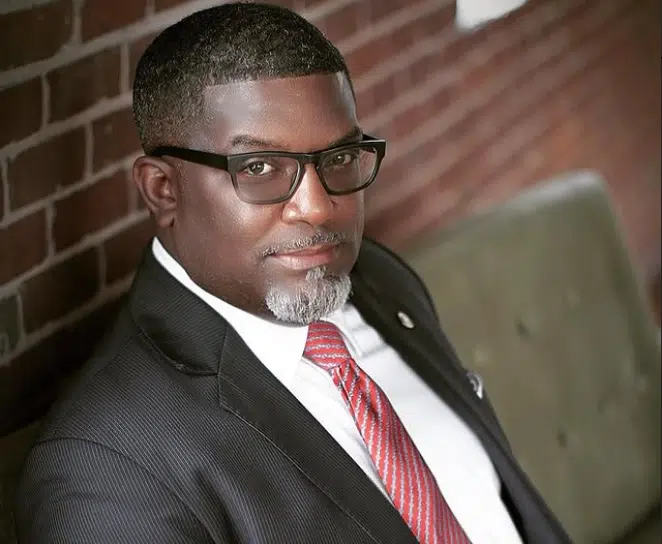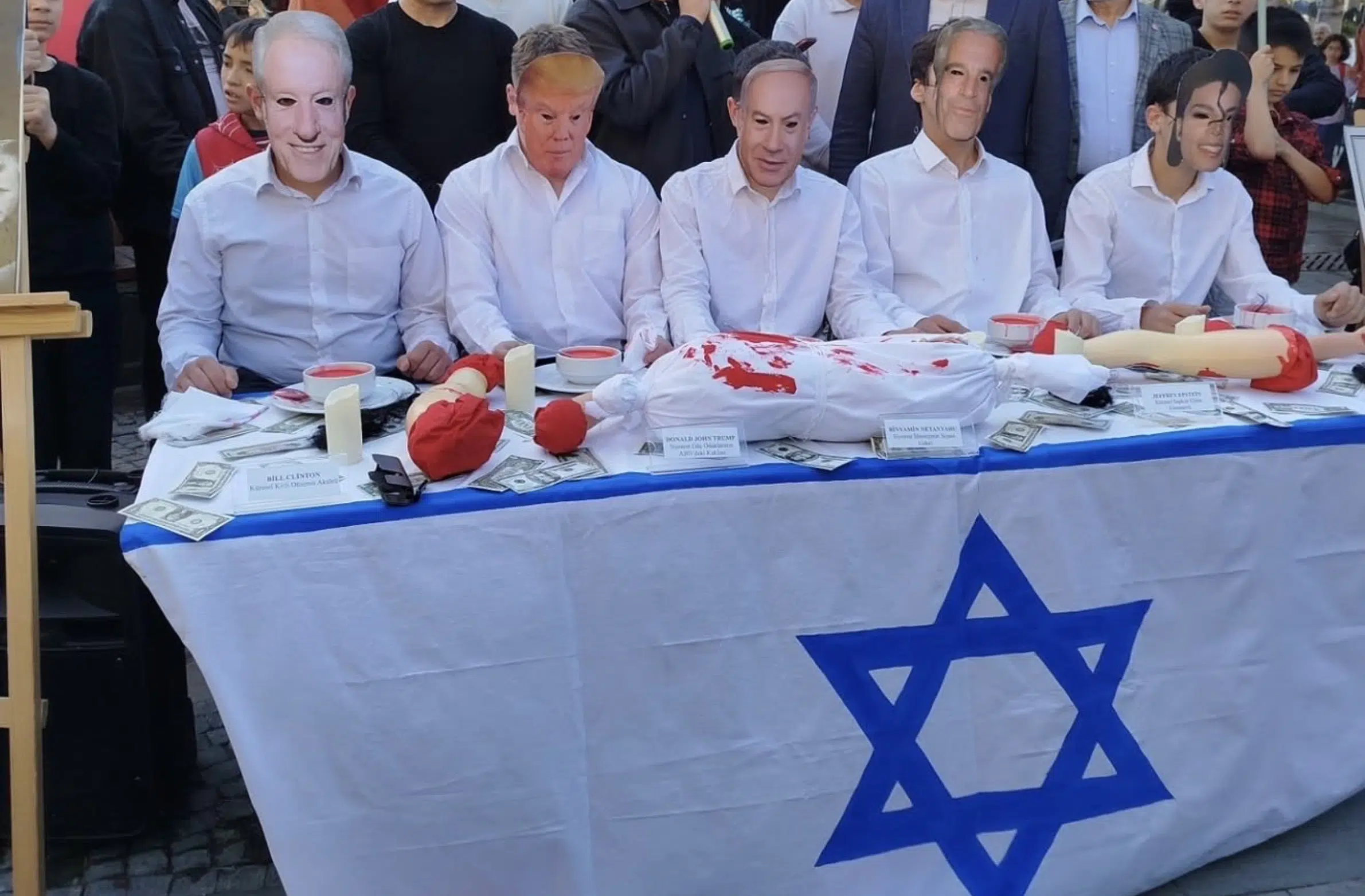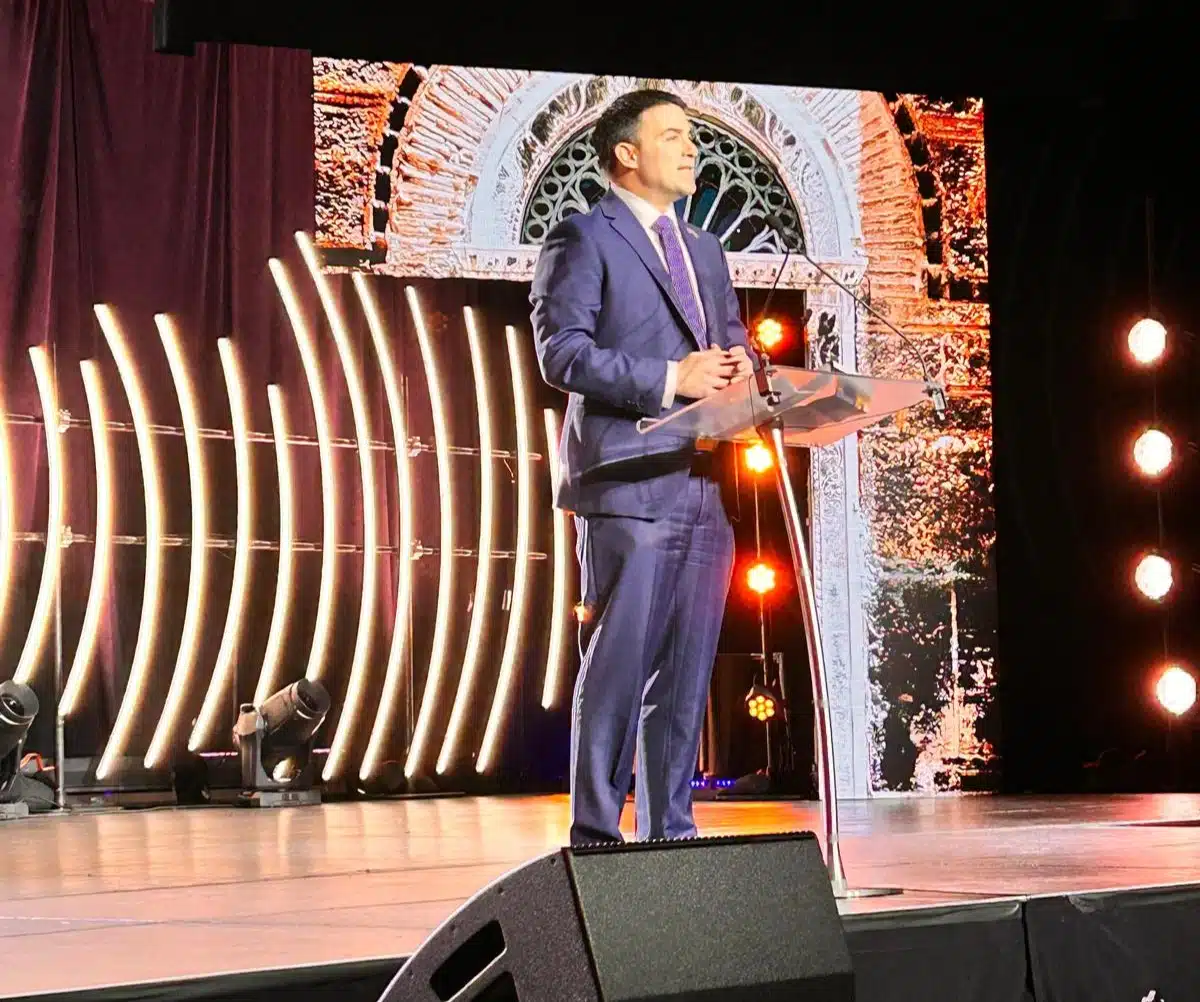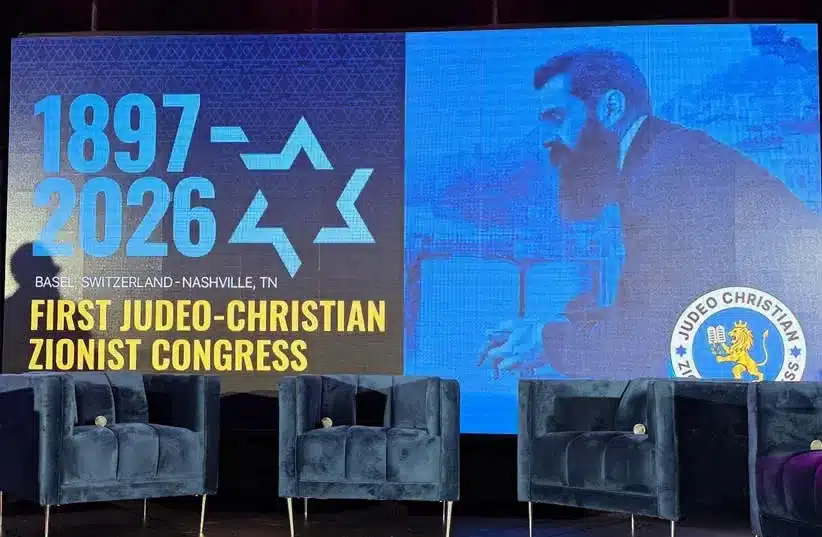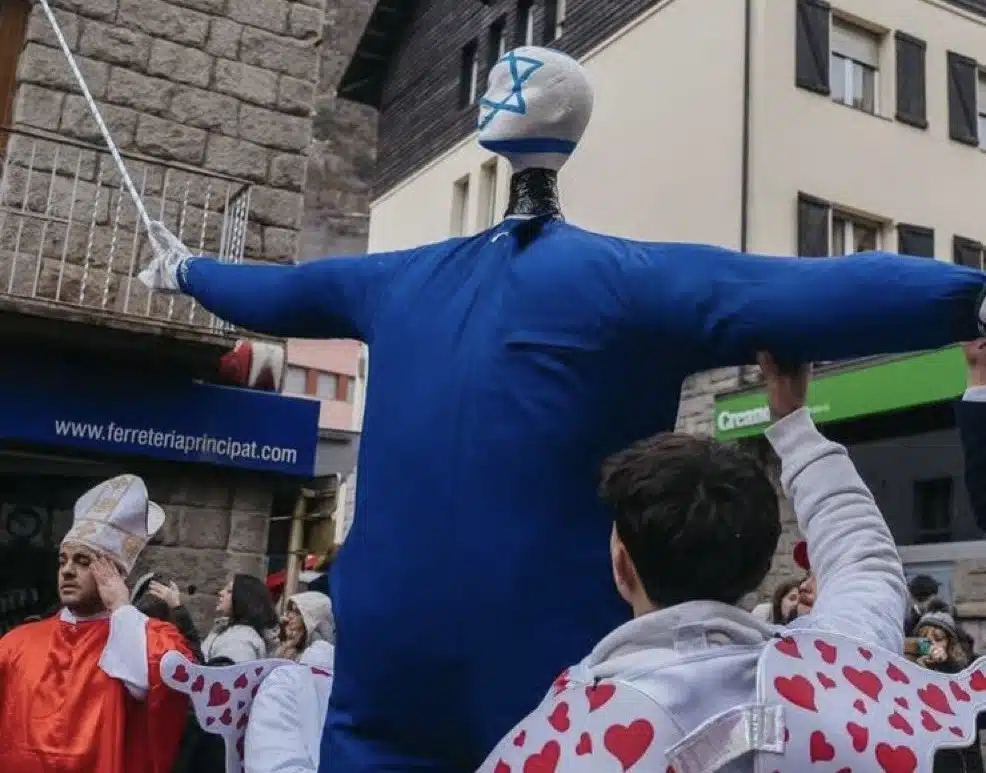|
Getting your Trinity Audio player ready...
|
Patrick Daly, Principal Deputy Director of the Secure Community Network (SCN), has played a central role in Jewish security for two decades.
A founding staff member of SCN, Daly now serves as a senior advisor to the National Director and oversees the organization’s core strategic and operational divisions, including Intelligence Operations, Field Security, and Preparedness Planning. He has worked closely with the U.S. Department of Homeland Security and law enforcement agencies across the country to protect Jewish institutions and communities across North America.
The Combat Antisemitism Movement (CAM) spoke with Patrick Daly to understand what every Jewish institution — and individual — needs to know to stay safe amid the unprecedented wave of antisemitic violence that has intensified since October 7.
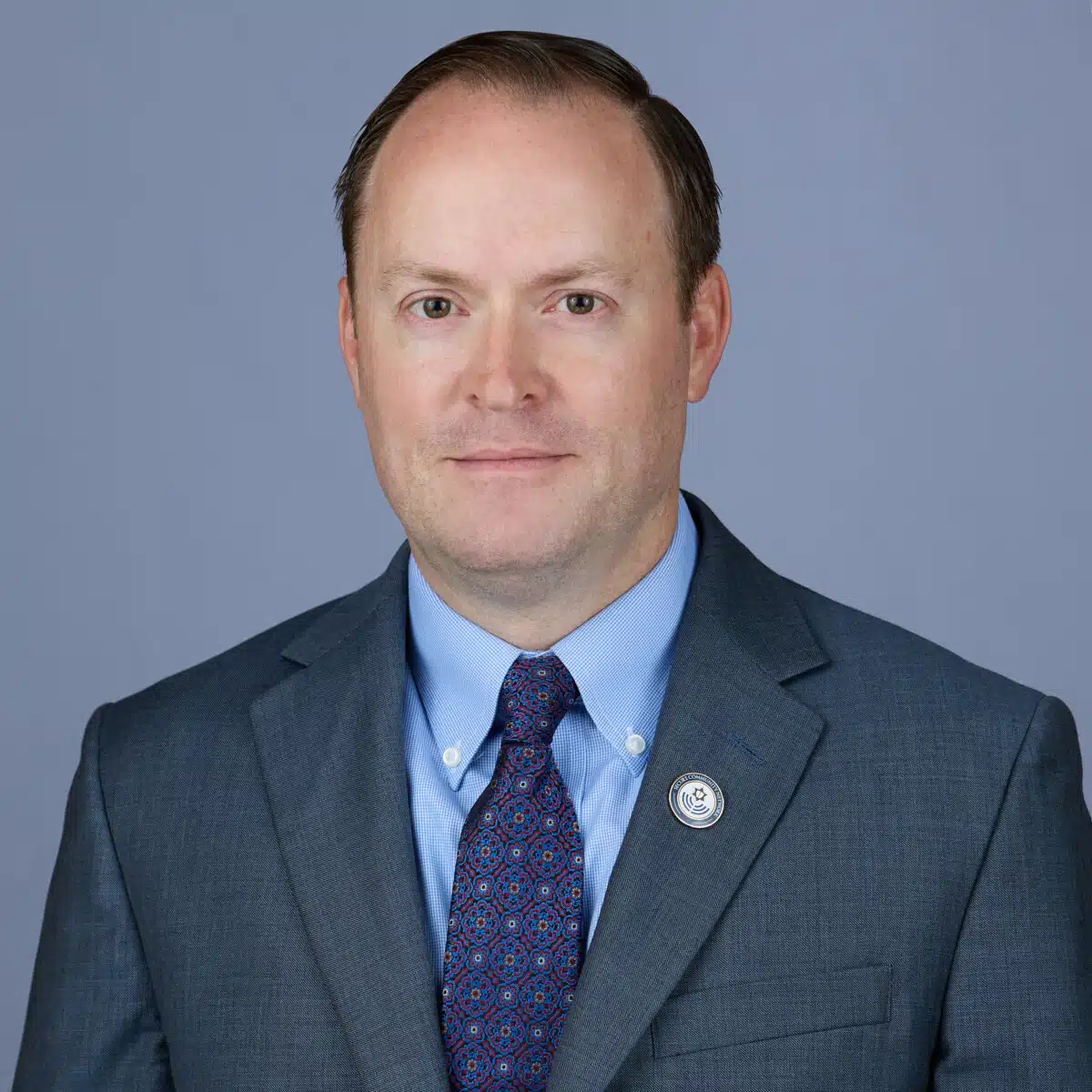
Since October 7, Jewish institutions have been targeted with alarming boldness — from the shooting in Washington, D.C., to the firebombing in Boulder, Colorado. In both cases, “Free Palestine” was not just a slogan — it was weaponized as justification for violence against Jews. What physical safeguards or procedural measures might have changed those outcomes? And how should communities confront the growing use of anti-Israel rhetoric as a vehicle for incitement and antisemitic violence?
“We are currently facing the most complex and dynamic threat environment the Jewish community has really ever faced in the U.S.,” Daly said, noting this escalation is evident in both law enforcement assessments and ongoing events on the ground.
Where once the primary danger came from neo-Nazi and white supremacist actors, today the threats are far more diverse and ideologically dispersed. “We went through a whole stretch of Islamist-based violence,” he noted. “And now we’re seeing it on the left as well.”
Daly emphasized that slogans like “Free Palestine” are increasingly being “co-opted” and “weaponized” to justify violence against Jews. “What we’re seeing is these chants have seemingly legitimized violence… they’ve been weaponized, certainly against the Jewish community — from campuses to events,” he said.
Without commenting on specific security protocols under investigation in Boulder or D.C., Daly pointed out that attackers deliberately exploit vulnerabilities, especially at event exit points. “We saw the perpetrator in D.C. be outside, go inside. And certainly, he made the attack outside, which is always a softer area of security… versus inside, where things are more secure.”
In response, Daly emphasized that communities must prioritize layered, proactive security. “Access control is one of the number one measures we’re recommending — knowing who’s coming in, how events are being publicized, and ensuring strong physical safeguards,” he said.
Personnel remain key. “Security is critically important,” Daly said. “And when I say security, I mean personnel — whether it’s off-duty law enforcement, hired guards, or trained volunteer security. They act as both a deterrent and a real response force.”
Finally, he called for stronger coordination between event organizers and security professionals. “We’ve made a concerted push: organizers need to be active participants in the safety of their events,” Daly said. “As professionals, we can only help with the events we know about.”
Given the ongoing surge in antisemitic threats since October 7 — and now the added instability from the Israel-Iran conflict — what are the three most urgent actions every synagogue, school, or JCC should take immediately to protect their community? What advice do you have for institutions that lack professional security staff and rely heavily on volunteers?
In this heightened threat environment — escalated not only by the October 7 aftermath but also by ongoing instability with Iran — Daly urged every Jewish institution to return to the basics: planning, training, and partnerships.
“It’s pretty simple,” he said. “Security is not rocket science — but it really is principle-based and comes down to discipline.”
The first step, Daly stressed, is to have a plan. “A plan for your event, for day-to-day operations — for anyone running or operating Jewish centers of life,” he said. “That includes training your staff, knowing what to look for, and how to respond in a crisis.”
Second, make security everyone’s responsibility. “We would never outsource the safety and security of our own family,” he said. “Nor should we expect others to provide 100% protection for our institutions. We need to be good partners in our own safety.”
Third, consult with professionals and coordinate with law enforcement. SCN now has over 100 federation-based and regional security professionals across the U.S., including regional directors covering underserved areas. “Their focus is ensuring that smaller communities — like Whitefish, Montana or Western Texas — have the same access to high-level security guidance that places like New York, New Jersey, L.A., or Miami do,” Daly said.
Daly added that institutions without full-time security staff should not feel helpless. SCN offers assessments, training, and support for volunteer-led communities. “You don’t have to go it alone,” he promised. “Lean on the network.”
Finally, Daly underscored the importance of layered security — a principle that protects against single points of failure. “Training, perimeter security, access control — if we don’t catch the threat at the perimeter, maybe the door lock or entry procedure will stop them,” he said. “Every layer adds a chance to prevent tragedy.”
We’ve seen rallies where chants glorify terrorism, call for “another October 7,” or praise Hamas and Hezbollah. From a security standpoint, when does protest become a direct threat? How should Jewish institutions prepare — legally, tactically, and psychologically — when that rhetoric shows up at their doorstep?
While protest is a constitutionally protected right in the U.S., Daly made clear that Jewish institutions must remain alert to the moment when rhetoric turns into risk — especially in today’s volatile climate.
“We do not monitor peaceful protests just because a protest is happening,” he clarified. But SCN’s Jewish Security Operations Command Center (JSOC), based in Chicago and staffed 24/7 by intelligence analysts, is constantly monitoring for signs that a protest is escalating toward violence. “The team is really trained to assess calls for violence, movement toward violence — especially from known groups or individuals who may cross the line from protected speech to actionable threats,” he said.
To make those assessments, SCN relies on behavioral threat experts to distinguish between what Daly calls “the hunters versus the howlers” — those capable of violence versus those merely making noise. “We look at rhetoric, past histories, and deeper profiles to determine who poses a credible threat,” he noted.
For institutions near protest zones, preparation is key — legally, tactically, and psychologically. “We train and equip organizations with guidance on how to prepare for and manage demonstrations,” Daly said. “We’ve seen peaceful protests evolve into violence — sometimes hijacked by just a few individuals with intent to escalate.”
Understanding the legal landscape is also crucial. Daily advised, “Know your rights. Know the boundaries of private property. Know where protesters legally can and cannot go. And work in advance with law enforcement to create space and separation between opposing groups.”
“There’s a lot we can do to ensure people can exercise free speech without compromising our safety and security,” he added.
When a threat comes in — whether it’s a bomb scare, an active shooter warning, or coordinated intimidation — what does an effective institutional response actually look like? Walk us through the first ten minutes: who acts, what decisions are made, and how does SCN support those actions in real time?
When a threat comes in — whether it’s a bomb scare, an active shooter alert, or a wave of coordinated intimidation — the first ten minutes are critical. And according to Daly, the most effective response is not chaotic or improvised — it’s calm, coordinated, and built on preparation.
“You don’t rise to the occasion — you fall back on your level of training,” he said. “We respond based on how we plan and prepare.” That’s why SCN emphasizes scenario-based planning, training, and exercises well in advance of any crisis.
A strong institutional response, he explained, begins with a rapid threat assessment and activation of the appropriate protocol. “It involves a security professional, immediate notification to law enforcement — especially in an active threat scenario — and instant connectivity with the SCN national team,” Daly said. “We provide real-time support, from intelligence and law enforcement liaison to on-scene assistance.”
But managing the threat is only part of the equation. Institutions must also manage the psychological response. “We’re handling two crises at once — the incident itself, and the fear it creates,” Daly noted. “A key role of the security professional is to bring down the temperature and reduce anxiety in the community.”
He illustrated this with the example of bomb threats in 2017, when one perpetrator repeatedly targeted the same facility, hoping to provoke panic. “He would watch online to see the reaction,” Daly recalled. “But once institutions realized these were hoaxes—and adjusted their response — the threats diminished. The attacker stopped calling those who didn’t give him the reaction he wanted.”
That doesn’t mean ignoring threats. “We have to respond to every threat until we know it’s a hoax,” Daly emphasized. “But a good, calm, and measured response — built on training and planning — can stop a crisis from becoming chaos.”
Iran is the world’s leading state sponsor of terror and has a long history of targeting Jewish communities abroad. Are there credible signs — surveillance activity, proxy behavior, digital chatter — that Iranian actors are directing or inspiring domestic threats in the U.S.? How does SCN incorporate international conflicts, like Israel-Iran, into threat modeling and community guidance here at home?
Iran’s influence on domestic threats to Jewish communities in the U.S. is real, growing, and deeply rooted in a long history of proxy violence. “We’ve been at this game a long time,” Daly said. “Being students of history is critically important — looking back at past attacks and understanding how Iranian and proxy actors respond to conflict is essential to the work we do.”
According to Daly, Iranian actors — including the Islamic Revolutionary Guard Corps (IRGC) — have long targeted diplomats, dissidents, and Jews abroad, not only through direct operatives but by outsourcing to criminal networks and gangs. “We saw that in Canada,” he said. “And even before the most recent escalation, Iranian and other state-based actors were influencing, actively encouraging, fomenting violence online.”
One particularly alarming area of concern is the influence campaign on college campuses. Daly referenced a bulletin from the Office of the Director of National Intelligence that highlighted Iranian-backed messaging and recruitment efforts in the U.S., particularly in academic spaces. “It wasn’t widely circulated, but those in the intelligence and security communities paid close attention,” he noted.
Iranian strategy often favors plausible deniability, using proxies like Hezbollah and Hamas to avoid direct responsibility. “Historically, these groups have sought to target Jews and Israelis outside of Israel — including in the U.S. — because of the difficulty of carrying out attacks inside our countries and the fear of direct retaliation,” Daly explained.
He also emphasized how international conflicts routinely inspire domestic violence. “We’re keenly aware of perpetrators attacking American Jews for what are perceived as Israeli policies,” he said. “I remember back in 2006, just two years into my work at SCN, there was the shooting at the Seattle Jewish Federation — carried out by a Pakistani-American who literally said he was angry at Israel during the Second Lebanon War. One person was killed, and several were injured.”
As tensions with Iran escalate, SCN remains deeply focused on threat modeling that includes foreign state actors and proxy groups. “It remains a significant concern we’re watching closely,” Daly concluded.
What security trainings should now be considered non-negotiable for Jewish institutions? Whether it’s situational awareness, lockdown protocols, or active threat response — which programs offer the greatest return on investment? And how can under-resourced communities quickly gain access to these tools through SCN or local partners?
If every other security measure had to be stripped away, Daly is unequivocal about what must remain: training.
“Training is what saves lives,” he said. “It’s why we invest so heavily at SCN in developing our own curriculum and delivering it across the Jewish community. If I had to remove all of the security guidance and principles we do, training would remain.”
Daly pointed to real-life examples — like the synagogue attacks in Colleyville and Pittsburgh — where survivors directly credited SCN’s training programs with helping them stay calm under pressure and act decisively. “It’s not just about having a plan,” he said. “It’s about having the mindset of security and being able to commit to action in the moment.”
At the core of SCN’s approach are three non-negotiable trainings that every Jewish institution should conduct on an annual basis:
- Be Aware Training — “Our introduction to situational awareness,” Daly said. “It teaches people what to look for, how to report suspicious activity, and how to stay alert in their everyday surroundings.”
- Countering-Active Threat Training — SCN’s comprehensive response program for active threats, including not just shootings but also edged weapon attacks, vehicle rammings, and other evolving tactics. “It’s more than just active shooter — it’s about expanding our readiness,” he said.
- Stop the Bleed – Life-saving trauma response training that empowers community members to provide emergency medical care in the critical minutes before first responders arrive.
Furthermore, SCN recently launched Guardian — a training tailored for frontline personnel at Jewish institutions, such as volunteers, receptionists, and JCC staff. “It’s about giving them the tools to serve as gatekeepers — knowing how to lock down a facility, respond to intruders, and alert people inside,” Daly said.
Training is also customized for specific audiences — from Jewish summer camps to Hillels and university communities — ensuring relevance and effectiveness across all segments of Jewish life. “Training is a life skill,” Daly said. “It empowers individuals to act, not freeze.”
To ensure access, SCN delivers training in-person, online, and in hybrid formats. In 2024 alone, the organization trained over 40,000 people. And for communities without the resources to implement formal security measures, SCN offers “low-cost, no-cost” options. “We’re acutely aware,” Daly emphasized, “that we’re only as strong as our weakest link.”
What everyday habits should individual Jews adopt right now to stay safe? What are the small, consistent behaviors that make the biggest difference in a high-threat environment?
When it comes to staying safe in a high-threat environment, Daly noted that the most effective habits are often the simplest — and the most consistent.
“Be aware of your surroundings. It’s a life skill,” he said. “Just like we teach kids to look both ways before crossing the street, situational awareness should be second nature.” Whether you’re walking to your car at night, riding public transportation, or attending a large gathering, awareness of who’s around you and what feels out of place can make all the difference.
Another lifesaving habit Daly recommended is “Stop the Bleed” training. “You’re more likely to use a tourniquet on someone who’s had a car accident than in a violent attack — but the skill is the same,” he said. Knowing how to respond to medical emergencies quickly can save lives, regardless of the cause.
In today’s digital world, cyber awareness is also essential. Daly cautioned against oversharing online, especially in real time. “A lot of people are posting everything, everywhere, as it happens,” he said. “If you’re attending a large Jewish event in Washington, D.C., don’t post about it while you’re there. And if you’re traveling, don’t broadcast that your home is empty.”
Finally, Daly stressed the importance of maintaining balance. “We need to be measured in our approach,” he said. “We can be aware without being paranoid.”
SCN monitors threats around the clock — both online and offline. In an age of overwhelming digital noise, how do you distinguish a credible threat from background static? Can you share a recent example where early detection allowed SCN to intervene — and what others can learn from that experience?
In an age of nonstop digital noise and rapidly shifting online rhetoric, separating real threats from background static is no easy task — but SCN has built the tools and team to do just that. “I’m really proud of this team,” Daly said. “Our JSOC employs some of the best intel analysts in the business — people with decades of experience in law enforcement and the intelligence community.”
After the 2018 Pittsburgh synagogue massacre, SCN launched Project RAINN — its Real-Time Actionable Intelligence Network. This proprietary system combines cutting-edge technology and artificial intelligence with expert human analysis to monitor the digital space around the clock.
“We built and deployed a stack of AI-driven technologies to scrape the web for threats — tracking bad actors, sorting through the noise, and flagging credible danger,” Daly explained.
In 2023 alone, SCN processed more than 5,400 threat incidents and suspicious activity reports — and proactively identified 500 threats to life. “That means we’re looking at threats that appear imminent, where we might not know the suspect’s exact location, but they’ve made a direct threat against a Jewish institution or individual,” Daly said. “Those cases are immediately shared with the FBI, who then engage local field offices for rapid intervention.”
That number is expected to rise to over 700 threats to life in 2025 — a staggering 40% increase. And often, early detection makes all the difference.
Daly recalled a recent case involving an individual in Las Vegas who was making threats online against the Jewish community. “Our team flagged it, connected quickly with law enforcement — our regional security director at the time was a former FBI agent — which helped expedite the process,” he said. “Within 36 hours, that individual was arrested and charged with terroristic threats.”
Speed, Daly emphasized, is everything. “Threats move at the speed of social media,” he said. “But when our team identifies something that crosses the line, we can share it with law enforcement fast enough to actually stop the attack before it happens.”
As antisemitism becomes increasingly normalized across the political spectrum promoting anti-Israel or openly hostile rhetoric, including calls to “Globalize the Intifada,” what kind of future do you see for Jews in the United States? Are we approaching a tipping point — and how should the Jewish community be preparing, not just physically, but psychologically and politically, for what comes next?
“It’s a tough question,” Daly acknowledged. “Without a doubt, we’ve had a really challenging 18 months.”
Antisemitism in the U.S. has reached record highs, and its normalization — across both ends of the political spectrum — has created a deeply volatile environment. “Universities have become hotbeds of antisemitic activity and virulent rhetoric,” he said. “And we’ve seen the legitimization of violence as a means to affect change. That’s become a significant issue.”
At a recent United for Security gathering in Washington, D.C., organized by the Jewish Federations of North America and the Conference of Presidents of Major American Jewish Organizations, Daly and other leaders brought these concerns directly to lawmakers. “When I described the legitimization of violence to influence policy, I said: what does that actually define? That is literally the definition of domestic terrorism,” he noted.
Recent attacks tell the story: from repeated incidents at Pennsylvania Governor Josh Shapiro’s home, to the fatal shooting of Israeli Embassy staffers in D.C., to the firebombing in Boulder, the threats are not hypothetical. “And yet,” Daly added, “the community is resilient — and will remain so. I truly believe that.”
Resilience, however, doesn’t mean complacency. Daly emphasized that enormous resources have been mobilized to defend Jewish life in North America. “We’ve invested tens of millions of dollars in community security and leveraged hundreds of millions more through the Nonprofit Security Grant Program to build a collective shield — to not just prevent attacks, but to mitigate their impact,” he said.
Still, Daly was candid about the road ahead. “The unfortunate reality is: we’re going to have attacks,” he said. “This country’s always faced attacks. The bad guys will get lucky. But we will mitigate and minimize the damage.”
And for that, unity is essential. “We just need to really be united in that fight,” he said.
Jewish students are navigating relentless harassment and even physical threats. What proactive steps should students — and their parents — be taking to stay safe on campus? And how is SCN working with Hillels, campus security, and law enforcement to ensure these threats are identified, escalated, and neutralized before they spiral out of control?
“There’s no doubt — over the last two years, campuses have been on fire,” Daly said. “Literally and figuratively.” For SCN, protecting Jewish students physically — not politically or ideologically — has been a top priority long before the October 7 watershed moment.
Back in 2016, SCN launched its Campus Security Initiative, the first of its kind, in partnership with Hillel, Chabad, Alpha Epsilon Pi, and others. “At the time, we were responding to what felt like isolated incidents,” Daly said. “But we knew they were part of a larger trend, and that Jewish students needed a safety infrastructure designed specifically for campus life.”
Unlike other groups focused on advocacy or antisemitism education, SCN’s mandate is clear: safety and security in physical spaces. “Our focus is strictly on making sure Jewish students are protected from physical harm,” Daly said.
That includes training Hillel and Chabad staff, publishing security guidance for public safety officials and administrators, and producing a college safety guide for Jewish high school students and their parents. “Even beyond antisemitism,” Daly added, “general campus security has become a deciding factor for parents choosing where to send their kids.”
During last year’s peak of campus encampments, SCN convened national law enforcement agencies, campus security leaders, the FBI, and DHS to develop best-practice guidelines on enforcing existing laws and student conduct codes. “We hear a lot about codes of conduct that aren’t enforced,” Daly said. “We worked with campuses that got it right — zero-tolerance policies, consistent enforcement — and we’ve seen positive results where administrators stepped up.”
For under-resourced campuses, SCN provides threat vulnerability risk assessments, identifying gaps like unsecured entrances, glass doors, or blind spots — and helping institutions apply for federal Nonprofit Security Grant Program (NSGP) funding to fortify their spaces.
“Sometimes it’s as simple as adding ballistic film to glass doors,” he said. “You’re not trying to make a building impenetrable — you’re buying time. The longer you can delay an attacker, the better your chance for survival and law enforcement intervention.”
When asked whether SCN trains students or staff to carry weapons, Daly was clear: absolutely not. “Our training is all about awareness, empowerment, and education. We’re not teaching people to be armed guards,” he said. “We don’t want congregants or students carrying firearms. We want licensed professionals.”
Instead, SCN teaches a layered approach to threat response — including the “Run, Hide, Fight” model, situational awareness, lockdown procedures, and improvised defense. “There are plenty of things — beyond guns — that can help someone survive a worst-case scenario,” Daly noted. “It’s about preparation and mindset.”
Finally, Daly acknowledged the critical role of political and moral leadership. “We don’t talk about it a lot, but the advocacy side matters too,” he said. “Having partners like [Congressman] Richie Torres — who say Jewish safety is non-negotiable and antisemitism is never acceptable — is incredibly important.”

